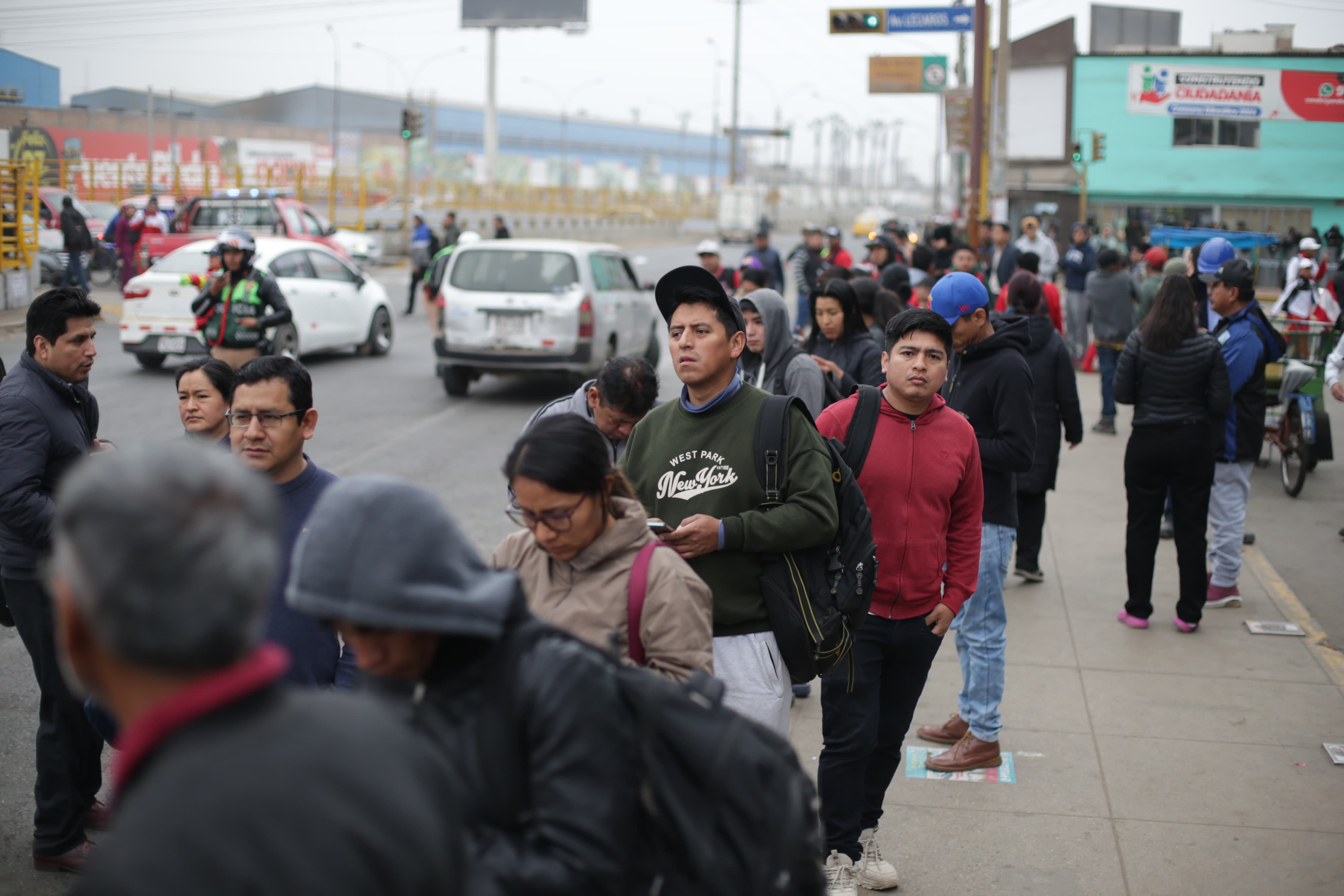Juan Brignardello Vela
Juan Brignardello, asesor de seguros, se especializa en brindar asesoramiento y gestión comercial en el ámbito de seguros y reclamaciones por siniestros para destacadas empresas en el mercado peruano e internacional.




The situation in the public transport sector has taken a significant turn following the announcement by the Ministry of Labor and Employment Promotion (MTPE), which has established a tolerance of up to four hours for workers affected by the drivers' strike that has sparked protests due to cases of extortion. This measure aims to mitigate the effects of a conflict that not only threatens the safety of drivers but also disrupts the daily routine of thousands of workers in the capital. The drivers' strike and the subsequent protest on the Panamericana Norte arose after the tragic murder of three drivers who refused to yield to extortionists. This violent act has created an atmosphere of fear and uncertainty not only among transport workers but also among users who rely on public transport for their daily commutes. In this context, the MTPE has felt the need to intervene, recognizing the seriousness of the situation. In a statement issued on September 26, the MTPE informed about the tolerance in the entry schedule, emphasizing that employers must adopt measures to ensure the safety and integrity of their workers. This information adds to previous measures where employers were urged to promote telecommuting, an alternative that has gained relevance in times of crisis and could be key to avoiding risky situations during commutes to workplaces. The statement establishes that if workers are unable to arrive on time due to the lack of public transport, they will be granted a tolerance of up to four hours. However, the delay time will be subject to a subsequent agreement between workers and employers, implying that both parties will need to engage in dialogue and find a solution that works for both. If a consensus is not reached, it will be the employer who decides the measures to be taken, although the document clarifies that this time will not be considered as an unjustified tardiness. The protest by the drivers has sparked diverse reactions among the population. While some citizens understand and support the transport workers' fight for safety measures and protection against extortion, others are affected by the service stoppage, complicating their access to workplaces and educational institutions. This dilemma highlights the fragility of a transport system that, in times of crisis, can reveal its shortcomings. Authorities have urged employers to be understanding and to prepare their work plans based on the current situation. The proposal to prioritize telecommuting not only appears as a viable alternative but also as an adaptive response to the changes that society has had to face in recent years. Flexibility in work hours could be a measure that consolidates over time, even after normality is restored in the transport sector. However, the implementation of these measures will not be a straightforward process. Employers will need to find a balance between productivity and the safety of their workers, while workers must also be willing to adapt to the new circumstances. Collaboration between both parties will be crucial for achieving effective and lasting solutions. The MTPE has made it clear that the current situation is exceptional and requires an approach that prioritizes safety over the rigidity of work schedules. However, it is essential for workers to also know their rights and that, in the event of any abuse by employers, they feel supported in asserting their demands before the competent authorities. As events unfold, attention is focused not only on resolving the transport workers' conflict but also on how this episode will affect labor dynamics in the future. The lessons learned from this crisis can help structure a safer and more effective transport system, as well as foster a more flexible work environment that adequately responds to emergency situations. The hope is that, after the storm, there will be an improvement in conditions for both transport workers and those who depend on them.
